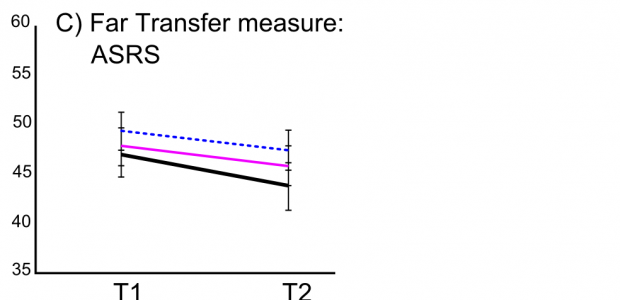Computerized brain-training programs often claim to improve aspects of general cognitive functioning. In this study, Karizma Mawjee and Drs Steven Woltering and Rosemary Tannock examined the extent to which these claims were true. Using a randomized controlled trial, college and university students with ADHD were tested on a battery of executive function and everyday-life functioning measures before, after, and a few months after a computerized working memory training program ended.
Findings showed that working memory improved only on working memory tasks that were similar to those that students trained on a daily basis! There was no evidence of transfer, i.e., that the treatment program benefitted working memory tasks dissimilar to those trained, other executive functioning tasks, or measures of everyday life functioning. This study can have implications for policymakers, the theory of (transfer of) learning, researchers, and everyone who is interested in improving cognitive functioning. Check out the paper here in Publication!
The NLD will continue efforts on improving existing training programs and creating new programs that are effective!


Recent Comments